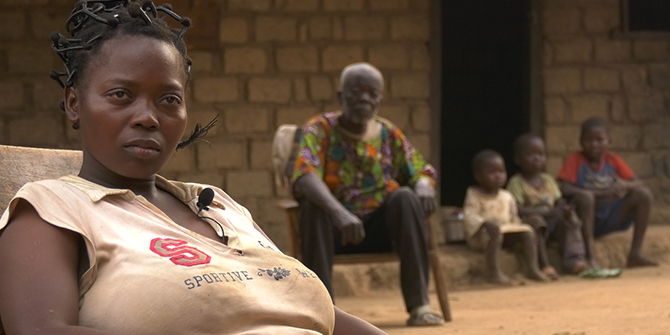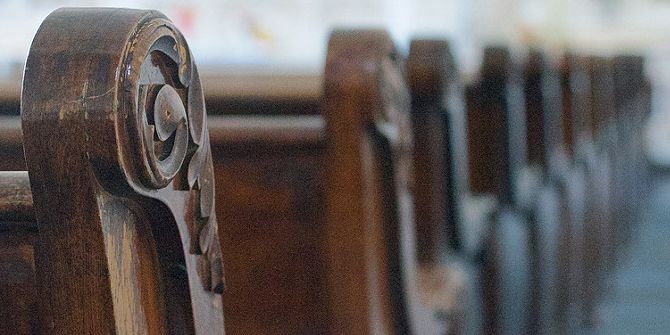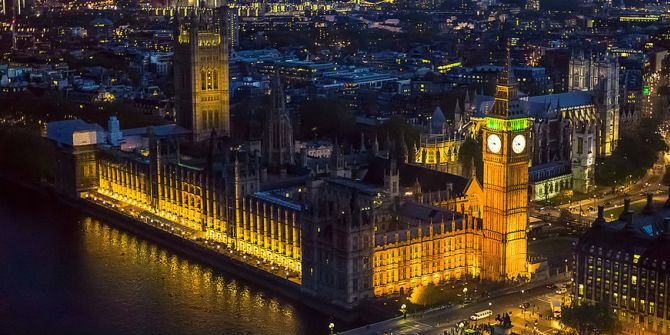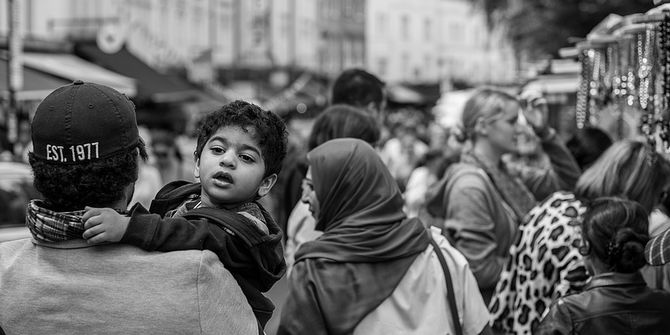In a call for smarter international development policy, Matthew D. Rees explores how religious identity intersects with other marginalised identities to render religious minorities especially vulnerable around the world.

On 19 February 2018 Boko Haram kidnapped more than 100 girls from a secondary school in the town of Dapchi, southern Yobe State in Nigeria. At the sound of gunshots, one of the girls, Leah Sharibu, ran towards the compound gate – not knowing that this was exactly where the Boko Haram fighters were waiting. Leah was bundled onto a truck and driven away.
By 21 March each of the kidnapped girls had been returned – except for one. As the only Christian among them, Leah refused to convert to Islam, and it is this which led Boko Haram to keep her in captivity.
Leah Sharibu – and countless women and girls like her who live in northern Nigeria and many other parts of the world – is doubly vulnerable to persecution because of her gender and her faith. Leah was kidnapped because she was a girl. She remains captive today because she is a Christian.
Open Doors works in over 60 countries across the world where Christians are persecuted for their faith. When we look at the world around us, we cannot ignore the fact that a great number of religious minorities are especially vulnerable because their faith intersects with other marginalising factors and identities.
Take ethnicity for example. By now, many will be familiar with the fate of the Rohingya community in Myanmar. Here is an ethnic community which practices a different faith to Myanmar’s Buddhist majority. The Muslims of Rakhine state have been denied citizenship because their combined religious and ethnic identity is perceived by the Myanmar state as a threat.
Readers may be less familiar however with the plight of the Kachin community in Myanmar’s mountainous northerly region. This ethnic minority community is 85% Christian. Its population, which does not fit with Myanmar’s understanding of Burmese identity, is also being systematically targeted by the army. Thousands have died and over 120,000 Kachin people have now been displaced in the decade-long conflict. United Nations Human Rights Council representative, Yanghee Lee, warned in March 2018 that the peace process with minority groups is losing momentum in Myanmar and hence any future agreement with the Kachin people looks unlikely. In Myanmar, faith and ethnicity have intersected in a toxic cocktail of widespread persecution.
Other vulnerabilities such as age are also targeted strategically by the perpetrators of religious persecution. In Colombia, overtly religious families strongly oppose the actions of guerrilla groups, because their faith-based values lead them to fundamentally disagree with the groups’ campaign of violence. In response to the Christian defiance that there is another way, a non-violent way, to organise society, the guerrilla groups often target these families’ children, threatening violence and attack. This means that many of these children are required to live in safe houses away from their families where they can be protected. Family values intimately guided by faith mean that these children are specifically vulnerable and require distinct protection.
The Department for International Development (DfID) has rightly recognised the specific vulnerabilities of women and girls and those with disabilities across the global south. But the escalating global trend whereby religious identity renders individuals, families, communities and even entire ethnic groups specifically vulnerable is too often overlooked. This has to better feature in government thinking, aid strategy and development planning.
Furthermore, when DfID provides aid to those in the greatest need across the world, it needs to think about the wholeness of the person they are working with. The Pew Forum estimates that as many as 83% of the world’s population has a belief in a god to some extent. That’s an incredibly high number. The reality is that the experience of those of us living in Western Europe is not the norm when it comes to religion. We may live in relatively secular realities – but the rest of the world does not.
There is a need therefore to take this into consideration when we provide care for traumatised women in northern Nigeria who have experienced horrific crimes at the hands of Boko Haram, or those who saw their loved ones brutally murdered by ISIS in Iraq or Syria. There is no separating these people’s ethnicity, gender, age or any other identity from their religious identity. Their world is delineated by ritual, religious language and their relationship to their faith community. Faith-based organisations and indigenous faith leaders, both male and female, are key partners in development if these people are to be properly reached.
Take Verlaine, a widow living in the Central African Republic (CAR). She witnessed the brutal murder of her husband by the Multinational Force for Central Africa. They bound him, took a can of kerosene and burnt him alive in front of her. Verlaine has received counselling and trauma care through her church leader, Pastor Danaway, who was trained by Open Doors’ partners working in CAR. When asked to assess his training, Pastor Danaway noted:
“We thank God that Open Doors taught us how to talk to people like Verlaine. We started by listening to her, over and over again. Only later could we begin to counsel her…It is important for the healing process of traumatized people that we encourage them to be active again – to start a small business…When they have something in their hands to take care of, it boosts their self-confidence and then it is easier for them to deal with what happened to them.”
Faith leaders can go where others cannot. Victims often relate to religious concepts and ideas and can gain strength from care which uses the lexicon of faith. Religion is an entry point into vulnerable communities across the world. Utilising faith leaders to facilitate trauma care is key because they are trusted members of society. It is important to remember that those who can utilise the religious language and imagery in their work do not have to be male denominational leaders – in the Christian community for instance they can include nuns, leading women within the church or female faith-based NGO workers. For instance, Pastor Danaway in CAR always ensures a woman from his church accompanies him when counselling a female member of his community. The reality is that faith communities are far more creative when it comes to gender-specific care than they are often given credit for. Faith leaders and faith-based organisations can also expedite further care, as they often act as community leaders and can give legitimacy to clinicians and medical care providers. It is time that DfID in the UK, as well as the wider international community, recognised and partnered with this huge resource in development and aid programming.
The persecution of religious minorities is a growing trend worldwide. Evidence is pointing to the way in which religious persecution is often exacerbated by other marginalising factors such as being of the ‘wrong’ gender or ethnicity, or simply the innocence of being a child. When DfID considers how it rolls out aid, to whom it provides specific aid and through whom it may provide this aid, it is key that religious identity is taken into consideration. We cannot strip away from a vulnerable being the very thing which is core to her or his identity. Instead we must recognise the specific vulnerability of religious identity and act to prevent and alleviate the persecution and trauma perpetrated towards those who embody it. This must be carried out in a way which makes sense to their wholeness and simply speaks their language.
About the author
Matthew D. Rees has a PhD in International Politics from Aberystwyth University. He works for Open Doors UK, an organisation which works with vulnerable minority Christian communities in over 60 countries and campaigns on the international right to freedom of religion or belief for everyone.
Note: This piece gives the views of the author, and not the position of the LSE Religion and Global Society blog, nor of the London School of Economics.





